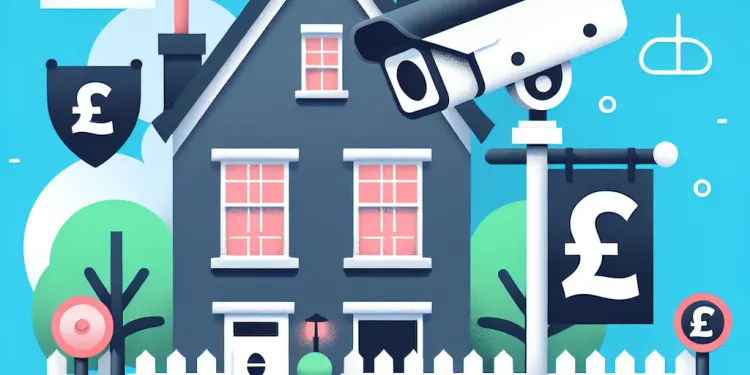
Find Help
More Items From Ergsy search
-

Can I ask my neighbour to reposition their security camera?
Relevance: 100%
-
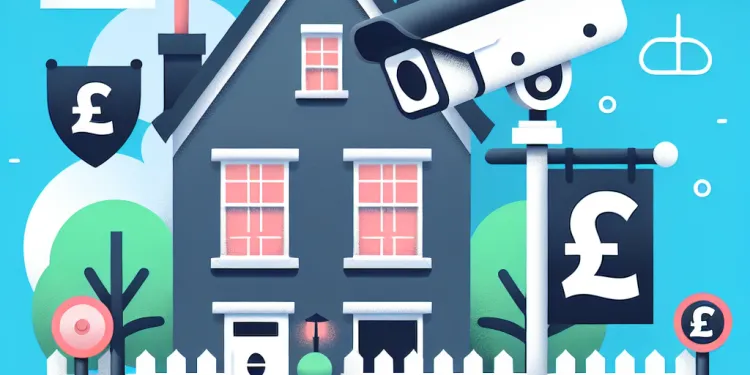
What steps can I take if my neighbour refuses to reposition their security camera?
Relevance: 88%
-
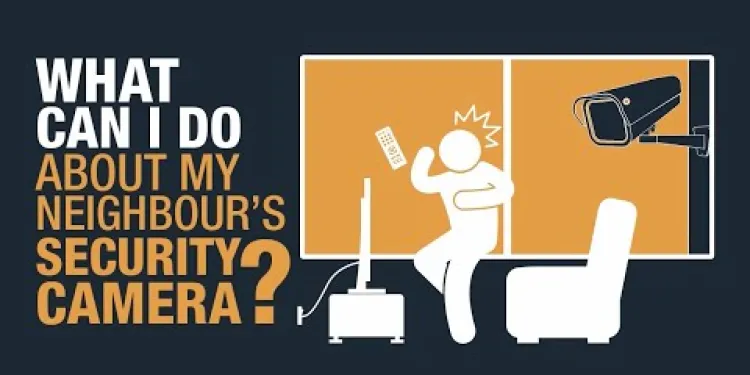
What can I do about my neighbour's security camera?
Relevance: 79%
-
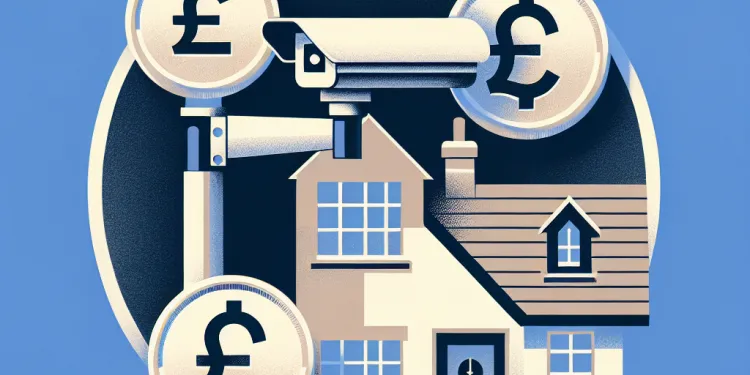
What if my neighbor claims the camera is for security but it points towards my property?
Relevance: 76%
-

What can I do about my neighbour's security camera?
Relevance: 71%
-
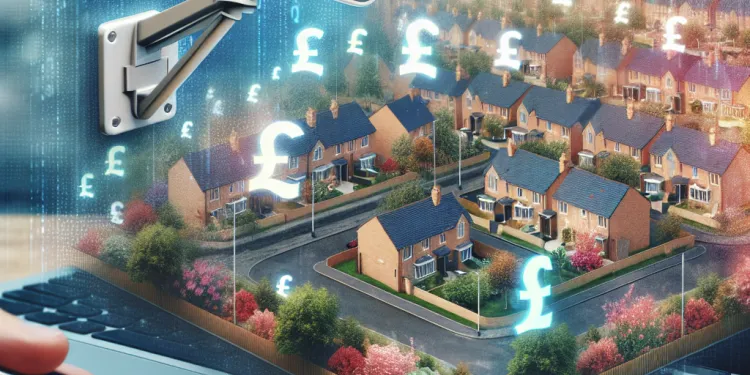
Is it legal for my neighbor to have a security camera facing my property?
Relevance: 71%
-

Is it legal for me to block the view of my neighbour's security camera?
Relevance: 70%
-

How can I stop my neighbour's security camera pointing at my property?
Relevance: 70%
-
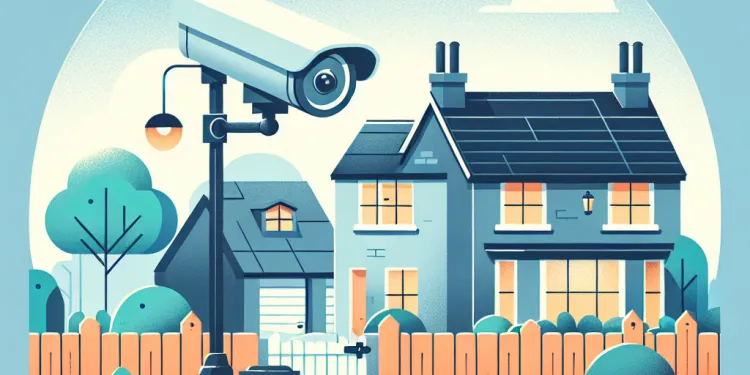
Can my neighbour legally point a security camera at my property?
Relevance: 70%
-
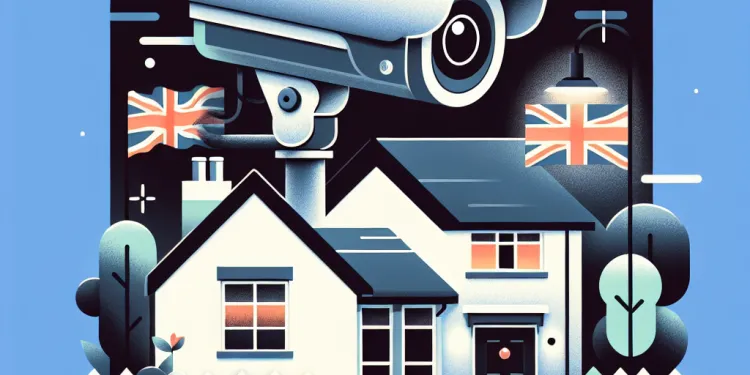
What should I do first if my neighbor's security camera is pointed at my property?
Relevance: 66%
-

Can I block the view of my neighbor's camera with physical barriers?
Relevance: 62%
-
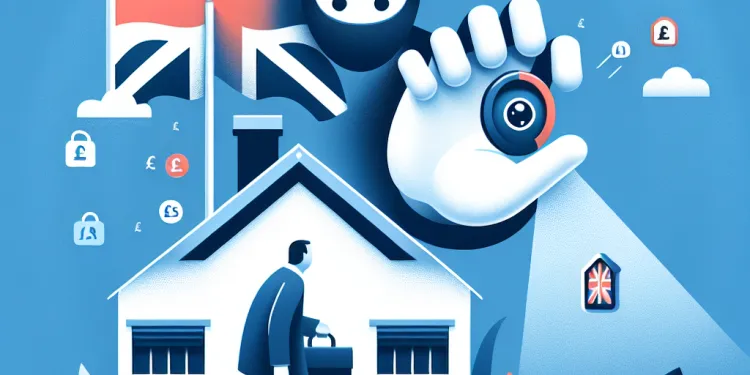
Can I ask for legal help to get my neighbor’s camera moved?
Relevance: 60%
-
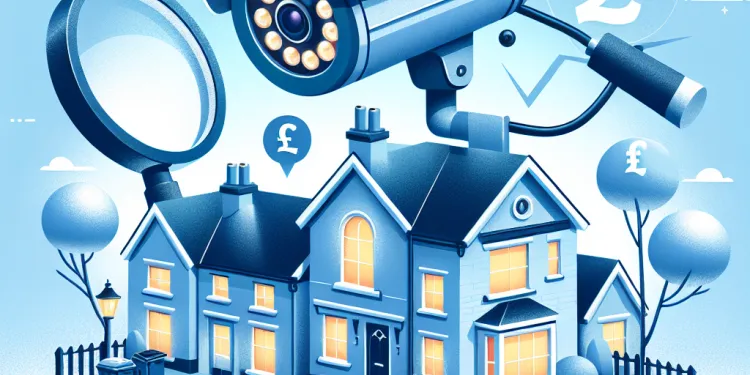
Can my neighbour use footage from their security camera as evidence in disputes?
Relevance: 58%
-

How can I tell if a security camera is pointing at my property?
Relevance: 56%
-
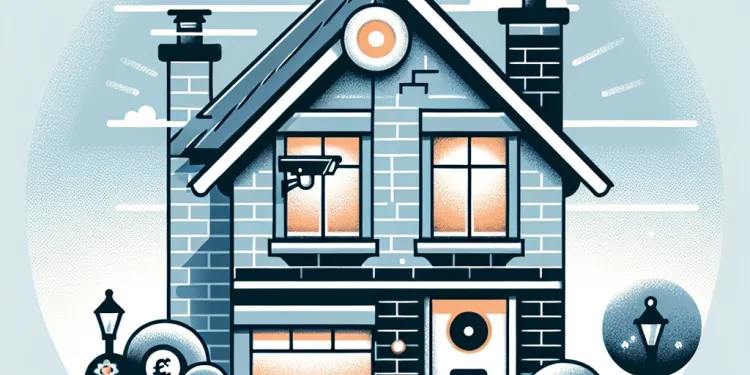
Do neighbours need to inform me if their cameras record my property?
Relevance: 56%
-

Are there privacy laws that protect me from neighbor's cameras?
Relevance: 56%
-

How can I disable my neighbour's security camera?
Relevance: 52%
-
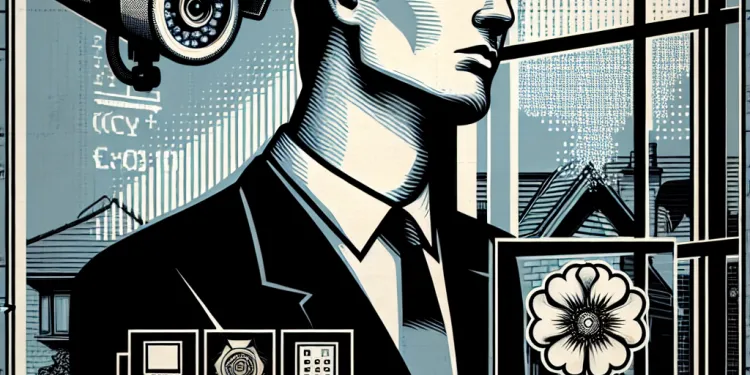
Should I contact the authorities if my neighbor refuses to adjust their camera?
Relevance: 52%
-
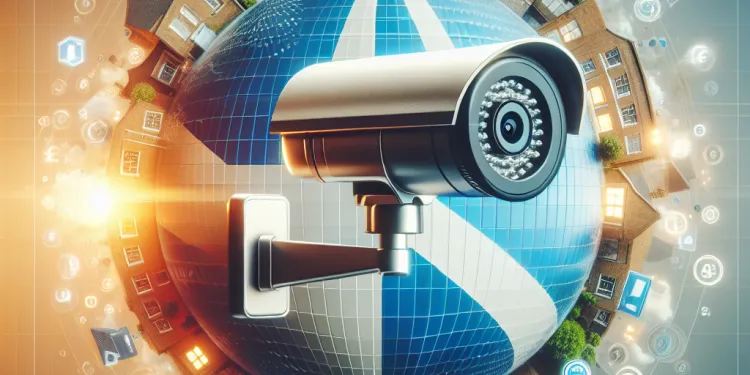
Is redirecting a security camera a solution?
Relevance: 52%
-

How secure is the Ring Doorbell Camera system?
Relevance: 45%
-
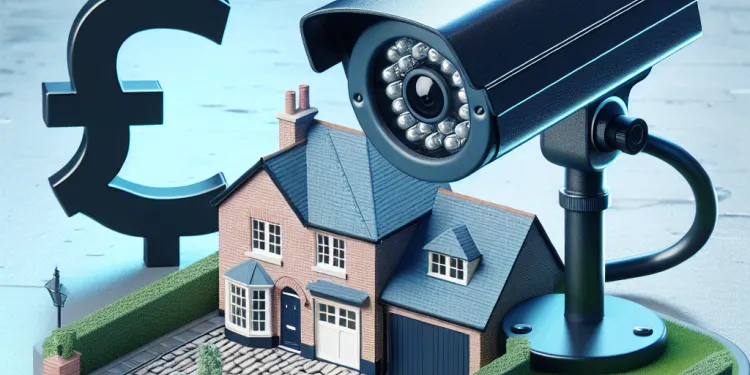
Is my concern valid if the camera is only monitoring my driveway?
Relevance: 45%
-
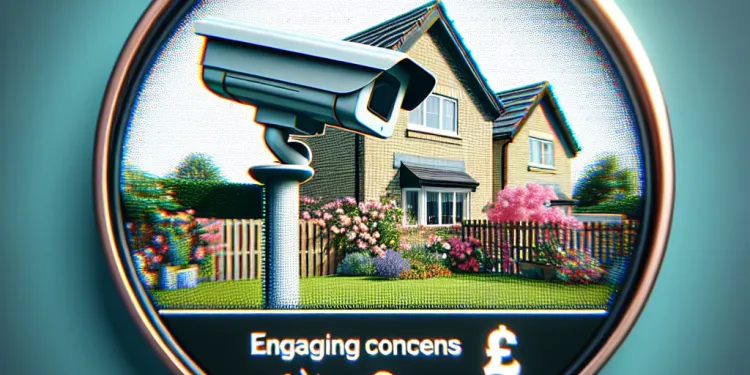
What should I do if I feel my privacy is being invaded by my neighbour's CCTV?
Relevance: 43%
-
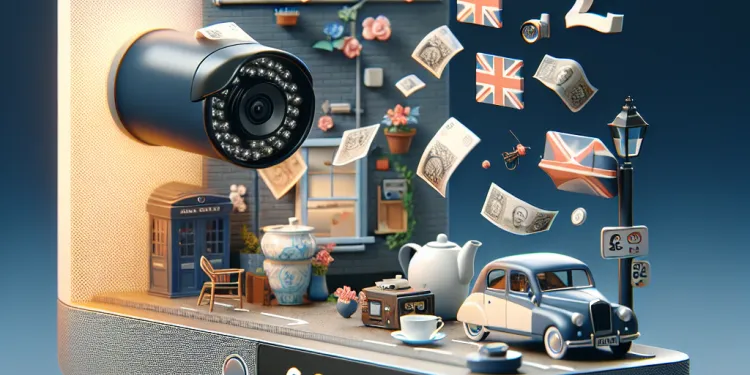
Can I install my own camera to monitor the area in question?
Relevance: 41%
-

Is it advisable to discuss camera placement before it becomes an issue?
Relevance: 39%
-

What laws apply to the use of security cameras in the UK?
Relevance: 36%
-
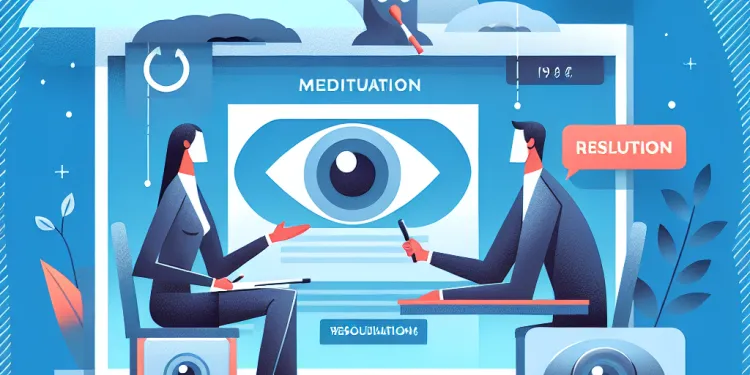
Are there any mediation services for resolving disputes over security cameras?
Relevance: 35%
-
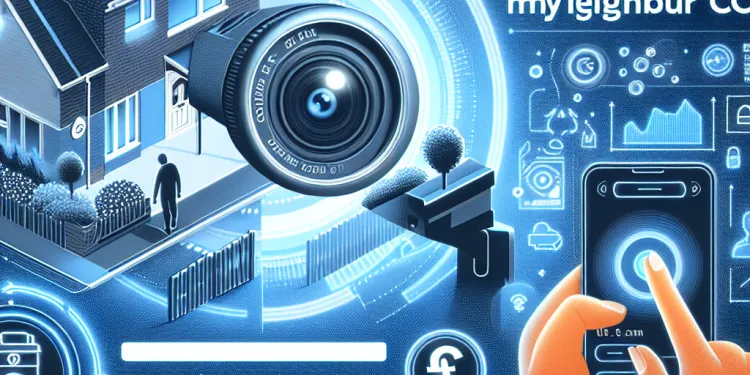
Can I request footage of myself from my neighbour's CCTV?
Relevance: 33%
-

What is my neighbour required to do under GDPR?
Relevance: 33%
-
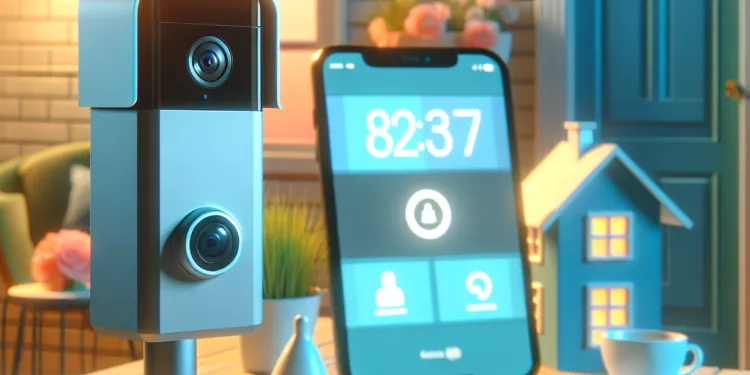
What happens if my Ring Doorbell Camera is stolen?
Relevance: 32%
-
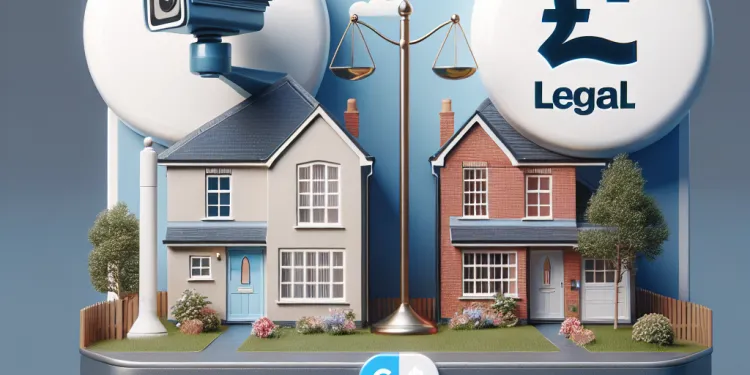
Can the police access my neighbour’s CCTV footage without consent?
Relevance: 32%
-
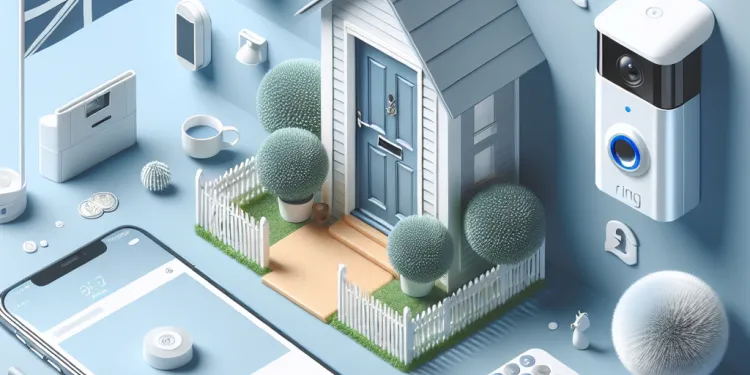
How do Ring Doorbell Cameras work?
Relevance: 31%
-

Is the video quality of a Ring Doorbell Camera good?
Relevance: 31%
-
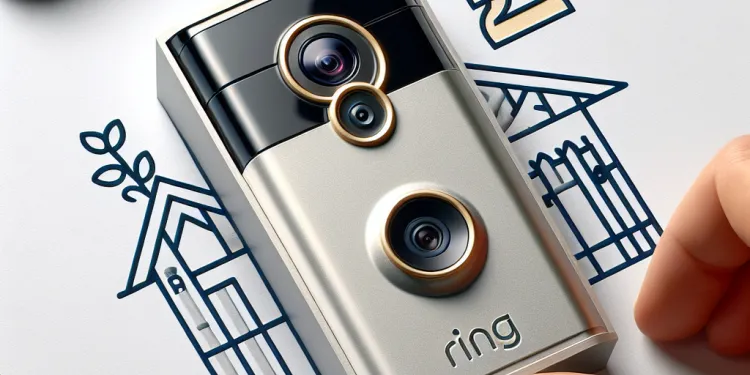
What is a Ring Doorbell Camera?
Relevance: 31%
-

What happens if a neighbor builds a fence on my property?
Relevance: 30%
-

Is it necessary to check on neighbors during a heatwave?
Relevance: 30%
-
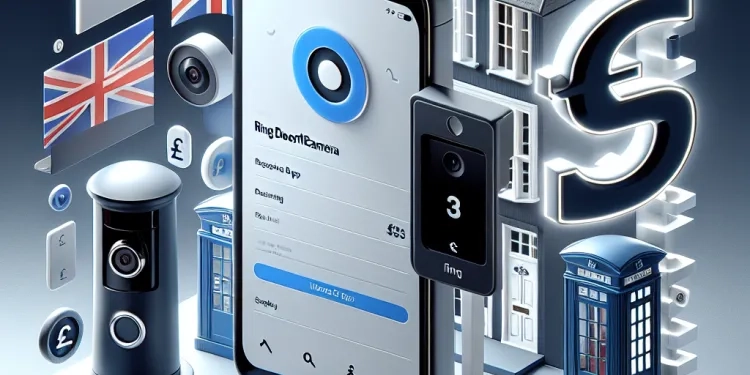
Is the Ring app necessary for using a Ring Doorbell Camera?
Relevance: 29%
-

Can I customize motion detection on my Ring Doorbell Camera?
Relevance: 29%
-
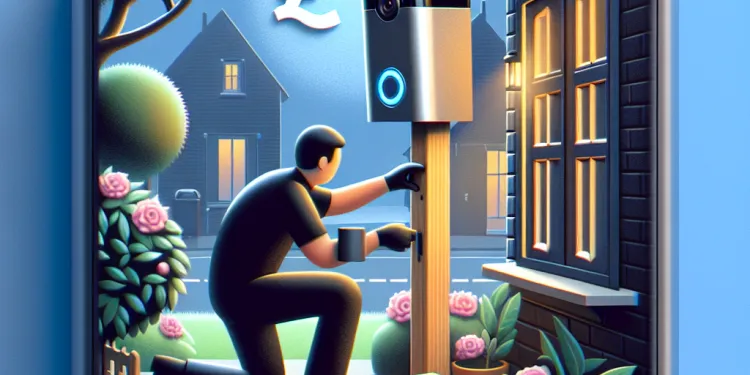
How do I install a Ring Doorbell Camera?
Relevance: 29%
-
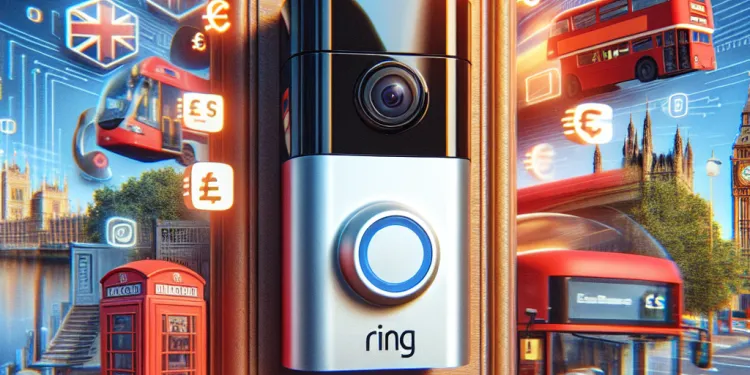
How does a Ring Doorbell Camera work?
Relevance: 29%
-
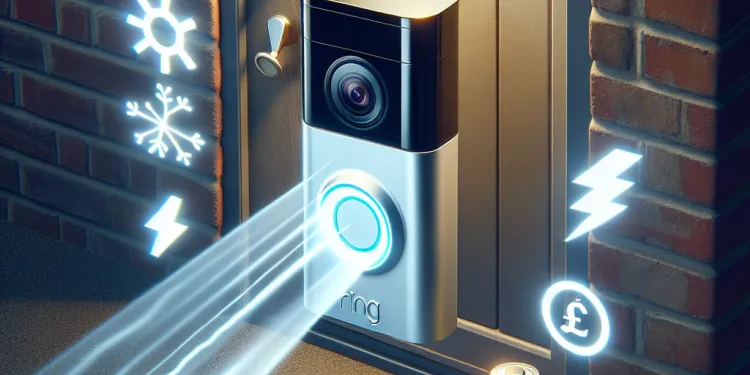
How does a battery-powered Ring Doorbell Camera work?
Relevance: 28%
Understanding the Issue
In the UK, many residents use security cameras to protect their homes and deter crime. However, these cameras can sometimes cause disputes, especially if a neighbour feels that their privacy is being invaded. If you believe your neighbour's security camera is improperly positioned and intrudes on your privacy, there are steps you can take to address this issue.
Contact Your Neighbour
The first step is to communicate directly with your neighbour. Approach them politely and express your concerns about privacy. There might be a chance that they are not aware of the issue and will reposition the camera willingly. Ensure that the conversation remains respectful to avoid escalating the situation.
Review Legal Guidelines
It's important to understand the legal guidelines surrounding the use of security cameras. In the UK, the Information Commissioner's Office (ICO) provides rules regarding video surveillance under the Data Protection Act 2018. If the camera captures images beyond the boundaries of your neighbour's property, it must comply with data protection laws.
Seek Mediation
If initial discussions do not resolve the situation, consider seeking mediation. A neutral third party can help to facilitate a better understanding between you and your neighbour. Mediation services are often effective at reaching a compromise without the need for legal action. Many community and local councils offer such services.
Contact the ICO
If you believe that your neighbour's camera is breaching data protection laws, you can contact the Information Commissioner's Office. They can provide advice and, if necessary, investigate the situation. The ICO has the authority to enforce compliance with data protection law, which might result in a directive for your neighbour to adjust their camera.
Consult with Local Authorities
If the problem persists and you feel that other steps have failed, you can contact your local council or law enforcement for advice. They can guide you on further actions and, if deemed necessary, may intervene. Remember to provide them with any evidence gathered to support your claim, such as photos of the camera's position.
Legal Action
As a last resort, you may consider legal action. This step involves seeking legal advice to explore the possibility of a court order to have the camera repositioned. Legal proceedings can be lengthy and costly, so it's generally advised to exhaust all other avenues beforehand.
Conclusion
Dealing with a neighbour's intrusive security camera can be a delicate issue. It is best handled through direct communication and mediation whenever possible. Understanding the legal grounds and knowing the appropriate channels to seek help can empower you to address the matter effectively and amicably.
Understanding the Issue
In the UK, many people use security cameras to keep their homes safe. These cameras can help stop crime. But sometimes, cameras can make neighbours upset if they feel their privacy is invaded. If you think your neighbour's camera is pointing in the wrong place and you feel it invades your privacy, there are things you can do to fix this.
Contact Your Neighbour
The first thing to do is talk to your neighbour. Be polite and tell them about your privacy worries. They might not know it's a problem and could move the camera if you ask nicely. Make sure to keep the talk friendly so things don’t get worse.
Review Legal Guidelines
It's good to know the rules about using security cameras. In the UK, there are laws about video cameras. These laws say that if a camera sees more than just a neighbour’s property, it must follow data protection rules. This means it needs to be careful about what it records.
Seek Mediation
If talking doesn’t help, you can try mediation. This means having a person who isn’t involved help you both understand each other better. Mediation can help find an answer without going to court. Many communities have people who can help with this.
Contact the ICO
If you think your neighbour's camera breaks the law, you can talk to the Information Commissioner's Office (ICO). They can give advice and might look into the problem. The ICO can make sure the rules are followed and might tell your neighbour to move the camera.
Consult with Local Authorities
If the problem doesn’t go away, you can ask your local council or police for help. They can tell you what to do next and might be able to help in other ways. It's good to have proof, like pictures of where the camera is, to show them.
Legal Action
If nothing else works, you might think about legal action. This means talking to a lawyer about going to court to get the camera moved. Going to court can take a long time and cost a lot of money, so it's usually best to try everything else first.
Conclusion
Dealing with a neighbour's camera can be tricky. It’s usually best to talk it over and try to agree. Knowing the rules and who to ask for help can make solving the problem easier and keep everyone happy.
Frequently Asked Questions
What is the first step if my neighbor refuses to reposition their security camera?
The first step is to have a polite and respectful conversation with your neighbor expressing your concerns about privacy.
Can I request legal advice if my neighbor's camera invades my privacy?
Yes, seeking legal advice from a lawyer with experience in privacy or property law can provide guidance on your rights and options.
Is it advisable to contact the homeowners association (HOA) about the security camera issue?
If you live in a community governed by an HOA, you can contact them to see if there are any rules regarding security cameras and privacy.
Can I reach out to local law enforcement regarding the privacy intrusion?
If you feel comfortable, you can contact local law enforcement to explain the situation and see if they can offer any solutions or mediation.
How can I document the situation with my neighbor's security camera?
Take photos or videos of the camera's positioning and keep a diary of any interactions with your neighbor concerning the issue.
Does installing privacy screens or fences help with the camera issue?
Yes, installing privacy screens, fences, or planting tall shrubbery can help block the camera's view into your property.
Should I try mediation if discussing directly with my neighbor doesn't work?
Yes, mediation can be an effective way to resolve disputes when direct communication doesn't work. You can seek a professional mediator to assist.
What should I do if I believe the camera is recording audio illegally?
Check your local laws on audio recording, as it may be illegal without consent. Report any illegal activities to the appropriate authorities.
Can I use a laser or other device to disable the camera?
No, disabling or damaging the neighbor's camera is not advisable as it could lead to legal consequences for you.
What are the typical privacy laws regarding security cameras in residential areas?
Privacy laws vary by location, but generally, cameras should not record areas where people have a reasonable expectation of privacy, like inside homes or fenced yards.
Is contacting a community mediation service a viable option?
Yes, community mediation services can help both parties come to an agreeable solution with the help of a neutral party.
Can I file a formal complaint with local authorities?
Yes, you can file a formal complaint with local authorities if you believe the security camera is violating your rights.
Should I consult property or neighborhood regulations regarding security cameras?
Yes, checking your property deed, neighborhood covenants, or local ordinances can provide information on regulations regarding security cameras.
Is it helpful to gather evidence of how the camera affects your privacy?
Yes, gathering evidence such as photos, videos, and written records can support your claims when discussing the issue with authorities or a mediator.
What role can a neighborhood watch or community group play in this issue?
A neighborhood watch or community group can assist by facilitating discussions or voicing privacy concerns as a collective group.
Are there any technological solutions to alert my neighbor about the privacy invasion?
You can explore using motion-activated lights or signs on your property to alert your neighbor about the camera's positioning.
Can local government resources assist with security camera disputes?
Yes, some local governments offer resources or ombudsman services to address neighborhood disputes, including security camera issues.
What should I consider before installing my privacy-enhancing measures?
Ensure that any privacy-enhancing measures comply with local regulations and do not infringe on your neighbor’s property rights.
Can installing my security camera help counteract a neighbor's invasive camera?
Installing your security camera can monitor your property, but ensure it doesn’t invade your neighbor’s privacy, leading to further disputes.
What if the camera affects multiple neighbors in the community?
If multiple neighbors are affected, a group approach can be more persuasive. Consider drafting a collective letter expressing your concerns to the neighbor.
What should I do if my neighbor's camera is pointing at my house?
If your neighbor's camera is pointing at your house and they won't move it, here are some simple steps you can take:
- Talk to your neighbor: This is the first thing you should try. Tell them how you feel and ask if they can move the camera.
- Write a note: If talking is hard, write a short note. Be polite and explain the problem.
- Ask for help: You can ask a friend or family member to talk with your neighbor if you feel worried.
- Use a privacy screen: Put up a screen or curtain at your window. This can help block the camera's view.
If these steps don't work, you might need more help. You can talk to a community worker or find other services that help with neighbor problems.
The first thing to do is talk nicely and kindly with your neighbor. Tell them how you feel about privacy.
Can I ask for help if my neighbor's camera is looking at my home?
Yes, talking to a lawyer who knows about privacy or property law can help you understand what you can do and what your rights are.
Should I talk to the Homeowners Association (HOA) about the security camera problem?
If you have a problem with a security camera, it is a good idea to talk to the Homeowners Association (HOA). They can help you solve the problem.
Here are some tips to help you:
- Write down what is wrong with the security camera.
- Ask someone to help you if you do not understand something.
- Use calm words when you talk to the HOA.
If you live in a neighborhood with a group that makes rules for homes, you can ask them if there are rules about using cameras and keeping things private.
Can I talk to the police about someone invading my privacy?
If you think someone is not respecting your privacy, you can talk to the police. They can help you understand what to do next.
Here are some tips to help you:
- You can write down what happened so you don’t forget important details.
- You can ask an adult you trust to help you talk to the police.
- It might help to ask someone to come with you for support.
Remember, the police are there to help keep you safe.
If you feel okay, you can talk to the police nearby. Tell them what is happening. They might help fix the problem.
How can I keep track of my neighbor's security camera?
Here are some steps you can follow:
- Take pictures or videos: Use a camera or phone to take pictures or videos of the camera's position.
- Write down details: Note when you saw the camera and what it looks like.
- Talk to your neighbor: Ask them about the camera if you feel comfortable.
- Ask for help: Talk to someone you trust, like a family member or friend.
- Use a journal: Keep a notebook where you write down everything about the camera.
You can also use a voice recorder or an app to help you keep track of things.
Take pictures or videos of where the camera is. Write down anything you talk about with your neighbor about it.
Will putting up screens or fences stop cameras from seeing?
Yes, you can put up privacy screens, fences, or plant tall bushes to stop the camera from looking at your home.
Is it a good idea to try mediation if talking to my neighbor doesn't help?
If talking to your neighbor is not helping, you can try mediation. Mediation means asking someone to help both of you talk and solve the problem. A mediator listens to both sides and helps find a solution.
You can ask a friend or a professional mediator to help. Mediators are good at helping people agree. They do not take sides.
Mediation can help solve problems when talking doesn't work. A mediator is a person who helps people talk and find a solution.
What can I do if I think a camera is recording sound and it shouldn't?
If you think a camera is recording sound and it should not be, you can do a few things:
- Talk to someone: Ask a trusted adult or friend to help you. They can give advice.
- Write it down: Keep a note of what you see and hear. This will help you remember the details.
- Ask questions: If it is safe, ask the person in charge of the camera if it can record sound.
- Get help: Contact someone like a teacher, the police, or a help service if you need more support.
Use helpful tools: You can use apps to help you write down or record what you notice. These might be on a phone or tablet.
Make sure you know the rules about recording sounds in your area. Sometimes, it is not allowed unless you ask first. If you see someone breaking the law, tell the police or the right people who can help.
Can I use something to stop the camera from working?
Can I use a laser or another tool to break the camera?
No, you should not break or turn off your neighbor's camera. If you do, you might get in trouble with the law.
What are the rules for using security cameras at home?
Privacy laws are different in each place. But mostly, cameras should not record where people expect privacy. This means places like inside homes or backyards with fences.
Can I get help from a community mediation service?
It is okay to ask for help if you have a problem with someone. Community mediation services can help people talk and solve problems. Here are some simple tips:
- Tell them what the problem is.
- Listen to what they say.
- They help both sides to agree.
If you need help, you can ask a friend or family member to come with you.
Yes, community mediation services help people sort out problems. They do this with a person who is not taking sides.
Here are some tips that might help:
- Ask for help from an adult you trust to explain big words.
- Use a dictionary or an online tool to look up words you don't know.
- Read out loud to understand better.
Can I tell the local authorities about a problem?
Do you have a problem and want to tell the local authorities about it?
You can. Here are some ways to do it:
- Write a letter or an email to them.
- Visit their office and talk to someone.
- Use their website to report the problem.
Remember, you can ask someone to help you if it feels difficult. You can use a computer or smartphone to send emails or letters. There may be people in your community who can help you fill in forms or write letters too.
You can tell the local authorities if you think a security camera is not respecting your rights. This means you can make a formal complaint.
Should I check the rules about security cameras?
If you want to put up a security camera, it's a good idea to check the rules. See if your neighborhood or building has any special rules about cameras.
- Ask your neighbors if they know any rules.
- Call the building manager or property owner for advice.
- Look online for neighborhood rules about security cameras.
If you need help reading or understanding, ask someone you trust for help. Using a dictionary or a text-to-speech tool can also make things easier.
Yes, you can find rules about security cameras by checking your property papers, neighborhood rules, or local laws.
Is it a good idea to see how cameras change your privacy?
Here is some more information to help you understand:
Cameras can look at you and what you do. This might change your privacy, which means having your own space and keeping things to yourself.
Finding out how cameras change your privacy can be smart. You can:
- Take notes about where you see cameras.
- Talk to friends or family about what they think.
- Use drawings or pictures to show what you learn.
Tools that can help you are:
- Using a camera to take photos of cameras you find.
- Writing in a notebook to keep track of everything.
- Asking someone to help you find the cameras or write things down.
Yes, it is good to collect things like photos, videos, and notes to help show your problems when talking to the people in charge or someone who helps solve problems.
How can a neighborhood watch or community group help with this problem?
A neighborhood watch or community group is a team of people who look after the area they live in.
They can help by:
- Watching for trouble and telling others about it.
- Talking to people about staying safe.
- Working with the police to stop problems.
Some helpful tools or tips include:
- Meeting regularly to talk about what is happening.
- Sharing a phone number to call for help.
- Using a website or message group to share news.
A neighborhood watch or community group can help by talking about privacy concerns and sharing them together as a team.
Can I use technology to tell my neighbor about a privacy problem?
You can use simple technology to help.
- Send a text message or email to explain the problem.
- Use a voice app to make a call and talk about it.
These steps can help you share your worries easily.
You can use lights or signs that turn on when they sense movement. Put these on your property to let your neighbor know where the camera is pointing.
Can local government help with problems about security cameras?
Do you have a problem with security cameras? You can ask for help!
Your local government might help you. They have people who know a lot about rules and problems.
Here are some ways to get help:
- Call your local council and ask for advice.
- Visit the council office and talk to someone there.
If you have trouble reading or understanding, you can ask someone to read it to you, or use tools like text-to-speech apps to listen to the words.
Yes, some local councils can help when neighbors argue. They have services to solve problems, including problems with security cameras.
What should I think about before adding privacy tools?
Make sure you follow the rules about privacy where you live. Do not do anything that might cause problems for your neighbors.
Can my security camera stop my neighbor's camera from spying?
Do you have a neighbor with a camera that looks into your home?
Putting up your own camera might help you feel safer. It can help keep an eye on things.
Here are some ideas to make it easier:
- Put your camera where it can see the neighbor's camera.
- Ask a grown-up to help with setting it up.
- Talk to your neighbor. Maybe they can move their camera.
- Ask someone you trust for advice if you feel unsafe.
Putting up a security camera helps you watch your home. Make sure it doesn’t point at your neighbor’s house. This way, you won’t upset them.
What if the camera bothers many neighbors in the community?
The camera might see parts of lots of houses. This could make many neighbors feel worried or not safe.
Here’s what you can do:
- Talk to your neighbors. Ask if the camera is okay with them.
- Check that the camera points at only your place.
- Use a cover or block to stop the camera from showing other places.
- You can also ask for help to change where the camera looks.
Talking with others can help keep everyone happy and feeling safe.
If many neighbors are worried, working together can be helpful. Try writing a simple letter with everyone to tell the neighbor about your worries.
Useful Links
Have you found an error, or do you have a link or some information you would like to share? Please let us know using the form below.
-->
This website offers general information and is not a substitute for professional advice.
Always seek guidance from qualified professionals.
If you have any medical concerns or need urgent help, contact a healthcare professional or emergency services immediately.
Some of this content was generated with AI assistance. We’ve done our best to keep it accurate, helpful, and human-friendly.
- Ergsy carfully checks the information in the videos we provide here.
- Videos shown by Youtube after a video has completed, have NOT been reviewed by ERGSY.
- To view, click the arrow in centre of video.
- Most of the videos you find here will have subtitles and/or closed captions available.
- You may need to turn these on, and choose your preferred language.
- Go to the video you'd like to watch.
- If closed captions (CC) are available, settings will be visible on the bottom right of the video player.
- To turn on Captions, click settings .
- To turn off Captions, click settings again.
More Items From Ergsy search
-

Can I ask my neighbour to reposition their security camera?
Relevance: 100%
-

What steps can I take if my neighbour refuses to reposition their security camera?
Relevance: 88%
-

What can I do about my neighbour's security camera?
Relevance: 79%
-

What if my neighbor claims the camera is for security but it points towards my property?
Relevance: 76%
-

What can I do about my neighbour's security camera?
Relevance: 71%
-

Is it legal for my neighbor to have a security camera facing my property?
Relevance: 71%
-

Is it legal for me to block the view of my neighbour's security camera?
Relevance: 70%
-

How can I stop my neighbour's security camera pointing at my property?
Relevance: 70%
-

Can my neighbour legally point a security camera at my property?
Relevance: 70%
-

What should I do first if my neighbor's security camera is pointed at my property?
Relevance: 66%
-

Can I block the view of my neighbor's camera with physical barriers?
Relevance: 62%
-

Can I ask for legal help to get my neighbor’s camera moved?
Relevance: 60%
-

Can my neighbour use footage from their security camera as evidence in disputes?
Relevance: 58%
-

How can I tell if a security camera is pointing at my property?
Relevance: 56%
-

Do neighbours need to inform me if their cameras record my property?
Relevance: 56%
-

Are there privacy laws that protect me from neighbor's cameras?
Relevance: 56%
-

How can I disable my neighbour's security camera?
Relevance: 52%
-

Should I contact the authorities if my neighbor refuses to adjust their camera?
Relevance: 52%
-

Is redirecting a security camera a solution?
Relevance: 52%
-

How secure is the Ring Doorbell Camera system?
Relevance: 45%
-

Is my concern valid if the camera is only monitoring my driveway?
Relevance: 45%
-

What should I do if I feel my privacy is being invaded by my neighbour's CCTV?
Relevance: 43%
-

Can I install my own camera to monitor the area in question?
Relevance: 41%
-

Is it advisable to discuss camera placement before it becomes an issue?
Relevance: 39%
-

What laws apply to the use of security cameras in the UK?
Relevance: 36%
-

Are there any mediation services for resolving disputes over security cameras?
Relevance: 35%
-

Can I request footage of myself from my neighbour's CCTV?
Relevance: 33%
-

What is my neighbour required to do under GDPR?
Relevance: 33%
-

What happens if my Ring Doorbell Camera is stolen?
Relevance: 32%
-

Can the police access my neighbour’s CCTV footage without consent?
Relevance: 32%
-

How do Ring Doorbell Cameras work?
Relevance: 31%
-

Is the video quality of a Ring Doorbell Camera good?
Relevance: 31%
-

What is a Ring Doorbell Camera?
Relevance: 31%
-

What happens if a neighbor builds a fence on my property?
Relevance: 30%
-

Is it necessary to check on neighbors during a heatwave?
Relevance: 30%
-

Is the Ring app necessary for using a Ring Doorbell Camera?
Relevance: 29%
-

Can I customize motion detection on my Ring Doorbell Camera?
Relevance: 29%
-

How do I install a Ring Doorbell Camera?
Relevance: 29%
-

How does a Ring Doorbell Camera work?
Relevance: 29%
-

How does a battery-powered Ring Doorbell Camera work?
Relevance: 28%


